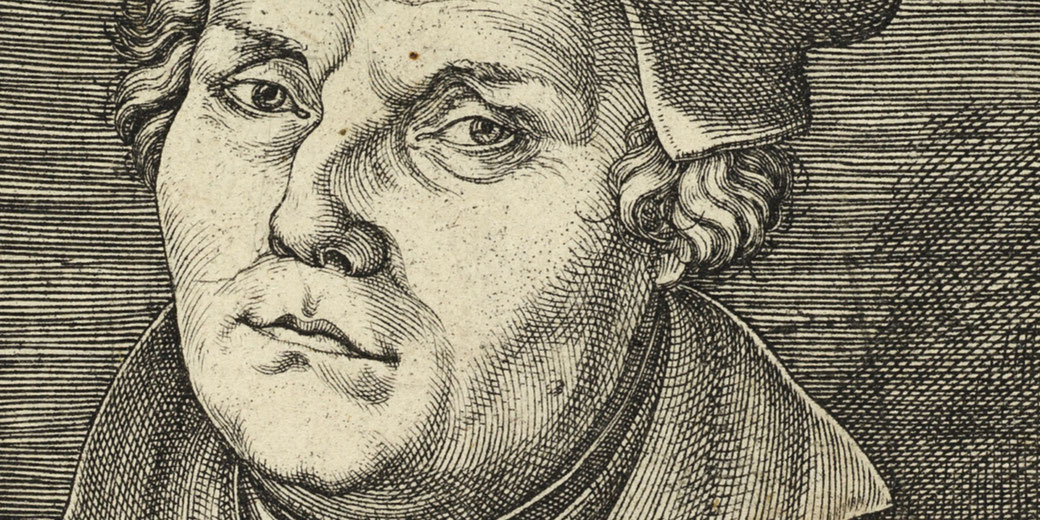Why Martin Luther’s 95 Theses upset church leaders so much

One day, in the 16th century, a German monk challenged church scholars to debate controversial and longstanding religious practices in a document that became known as the 95 Theses.
His open defiance outraged some of the most powerful men of his age, as they saw it as a direct attack on their power and their wealth, together with control over people's eternal salvation.
Reasons Martin Luther wrote the 95 Theses
Martin Luther wrote his 95 Theses in 1517 as a direct challenge to the practices of the Catholic Church, and he intended them to spark academic debate about indulgences.
On 31 October of that year, he composed them in Latin and sent a copy to Archbishop Albrecht of Mainz, who had authorised the indulgence campaign with Pope Leo X.
The pope had approved the sale of indulgences to raise funds for the construction of St Peter’s Basilica in Rome, while Albrecht used a share of the proceeds to repay heavy debts from purchasing multiple archbishoprics.
Accounts from later years claimed that Luther also posted the theses on the door of the Castle Church in Wittenberg, although no contemporary evidence confirms this story.
For university scholars, the format of the document reflected the style of a disputation, a standard academic exercise that presented a series of propositions for public debate and was often displayed in a prominent location.
At the core of the 95 Theses was the issue of indulgences, a practice in which the Church granted remission of punishment for sins in exchange for money.
Across German territories, Johann Tetzel, a Dominican friar, had promoted the sale of indulgences with slogans such as the well-known line, “As soon as the coin in the coffer rings, the soul from purgatory springs,” as part of this campaign that shared proceeds between Albrecht and Rome.
As a response to this abuse, Luther argued that forgiveness of sins came from genuine repentance and faith rather than financial transactions.
At several points, he stated that indulgences could not remove guilt before God, and he declared that Church leaders had no power to free souls from purgatory.
Thesis 27 condemned the preaching of indulgences for encouraging people to avoid true repentance, and Thesis 62 proclaimed that the real treasure of the Church was the Gospel of Jesus Christ.
Although he had not yet fully developed his doctrine of justification by faith alone, his criticisms set up the foundations for this belief.
Furthermore, a number of statements questioned the pope’s authority to grant spiritual benefits and criticised the idea that the Church could use God’s grace as a source of revenue.
In their overall tone, the theses encouraged Christians to perform charitable works and to seek heartfelt contrition instead of relying on indulgences.
The results of Luther’s attack on papal authority
Many statements also addressed larger theological concerns that weakened papal authority.
On several occasions, he warned that indulgences placed souls in spiritual danger, which offered a false promise of salvation.
For Luther, the Bible served as the ultimate authority on salvation and moral teaching.
In urging Christians to follow Christ’s example, he called on them to practise mercy and charity, particularly towards the poor, rather than waste their money on indulgences.
As a result of these statements, Luther’s 95 Theses spread rapidly across Germany and across Europe.
Printing presses in cities such as Nuremberg and Leipzig produced copies for circulation, and translations into German made the document accessible to ordinary readers.
As a consquence, many people who had already criticised indulgences privately now had a powerful text that expressed their grievances.
Humanists such as Erasmus initially welcomed the call for reform but grew cautious as Luther’s position became more extreme.
In reaction to the controversy, Church authorities treated the theses as a direct attack on their power and summoned Luther to defend his position.
His refusal to retract his views led to formal excommunication on 3 January 1521 and an appearance before Emperor Charles V at the Diet of Worms in April of that year, where he declared that he could not recant unless convinced by Scripture or reason.
After the Edict of Worms declared him an outlaw, he entered protective custody at Wartburg Castle, and later in 1521 he began to translate the New Testament into German.
Ultimately, the 95 Theses became one of the events that started the Protestant Reformation and altered the Church permanently.
What do you need help with?
Download ready-to-use digital learning resources
Copyright © History Skills 2014-2025.
Contact via email
With the exception of links to external sites, some historical sources and extracts from specific publications, all content on this website is copyrighted by History Skills. This content may not be copied, republished or redistributed without written permission from the website creator. Please use the Contact page to obtain relevant permission.





